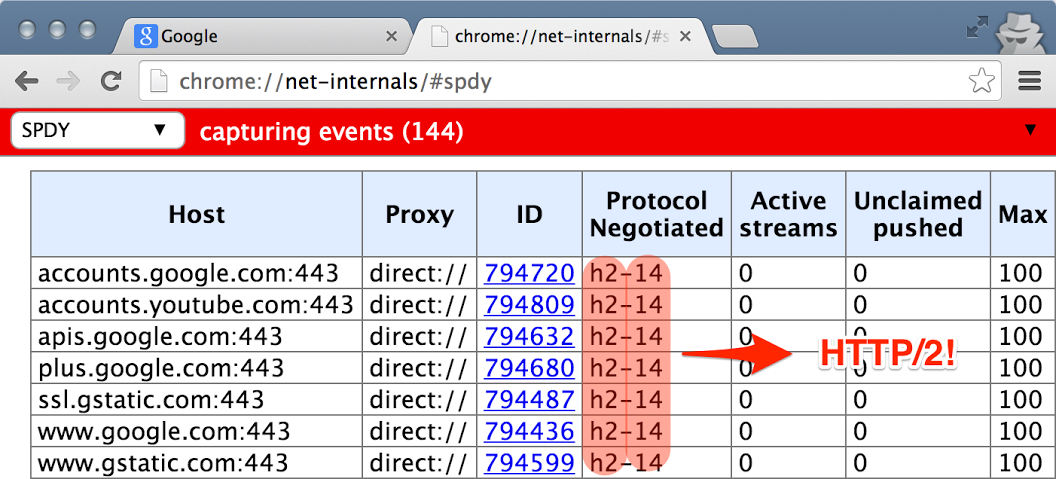Google today announced that it plans to fade out support for SPDY — its alternative to HTTP — in Chrome by early 2016. Now that the next version of HTTP is well on its way to standardization, Google has decided to abandon its own program in favor of the new standard. Support for HTTP/2 will arrive in Chrome’s main release channel in a few weeks.
HTTP/2 will offer a number of major improvements over today’s HTTP 1.1 standard. While HTTP 1.1 served its purpose well over the years, the web has changed quite a bit since it was codified in the late 90s. increases latency and hence sites load slower. Today’s websites are not only far larger than ten years ago, but they also routinely make hundreds of server requests on every load and open up dozens of connections. All of this
SPDY (pronounced “SPeeDY”) added a couple of new features to HTTP, including the concepts of streams, prioritization and protocol negotiation, that made it easier and more efficient for browsers to request multiple files from the same server without lots of back-and-forth between the server and client. SPDY also reduced overhead by compressing HTTP headers, a feature HTTP/2 will also support.

HTTP/2 started out as a copy of SPDY and remains heavily influenced by Google’s efforts. While the HTTP/2 working group made a number of changes to SPDY over the years, the protocol remains true to many of SPDY’s ideas, especially with regard to SPDY’s concept of streams (though HTTP/2 puts a different spin on this).
Given that HTTP/2 is well on its way to becoming a widely supported standard (all the major browser vendors are on board), it makes sense for Google to redirect its resources now. SPDY helped set the tone for HTTP/2, but at this point, there is no need for Google’s own efforts in this area (at least until HTTP/2 grows stale and outdated again).
“We’re happy to have contributed to the open standards process that led to HTTP/2, and hope to see wide adoption given the broad industry engagement on standardization and implementation,” writes Google engineers Chris Bentzel and Bence Béky today. “We also look forward to further advancements in fundamental Internet protocols that lead to a faster and more secure Internet for everyone.”
The company now recommends that server developers follow its path and focus solely on HTTP/2, as well as on ALPN, the HTTP/2 version of the Transport Layer Security protocol that enables secure https connections today. Google’s servers will likely support SPDY quite a bit longer than its browser, but in the long run, it will likely completely shut of SPDY support there, too.
